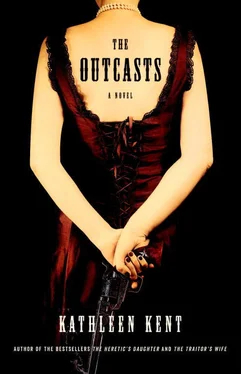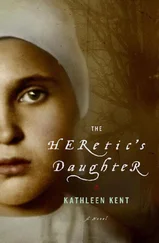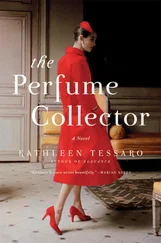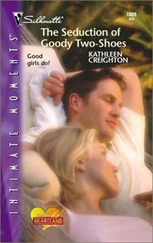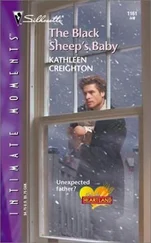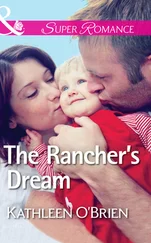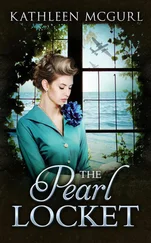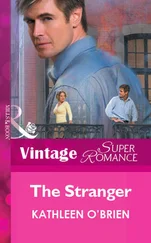Later, when the man followed her up the stairs, Lucinda was aware that Hattie was watching her from the bar, smiling; she had a fist on her hip and one foot on the railing, like a man. The French whore stood at the bottom of the banister observing her with quite a different look.
For the second time, Nate helped load Dr. Tom’s horse onto the Galveston train, but it was oriented on the rails pointing back towards Houston. In the baggage car was a long box labeled Houston Cemetery, to be signed for by the same physician who had seen Dr. Tom through his pneumonia; the felt-lined medical kit with all its gleaming, carefully tended scalpels and lancets was going to the Houston doctor in gratitude for services rendered. In the instructions for burial, Nate had included the epitaph for the headstone. He had wanted a passage from Dickens, but the wordiness of the author’s sentiments made the job too costly, so he wrote what was on Deerling’s headstone: Comrade in Arms, Father, Friend. Nate didn’t know the year Dr. Tom was born, so below the first line he put only the year of his death: 1870.
For a good while he lingered on the platform, even after the train had departed, as the state policeman standing next to him shifted impatiently. The officer was a tall, wasp-waisted black man, the first state policeman of color Nate had seen. That officer’s partner was also black, blue-black like a grackle’s wing, and he carried two cross-draw pistols in his belt. The officers had been summoned to the livery after Dr. Tom had been shot. In checking the ranger’s revolver, they found that he had fired off one shot, but there was no evidence that it had found its mark.
The officers carried out, to Nate’s mind, a swift and coolheaded search of streets surrounding the stables. But he had no idea how thoroughly they had searched the piers or the ships docked between them.
The lead officer’s name was Thoreau, which he pronounced “Thurah.” He watched Nate for a while and then cleared his throat. “There’s no way to know for sure if your man was on one of those steamers. Captains are bribed all the time to keep quiet about who and what’s on board. Besides, even if McGill was on a steamer, as long as he’s out of Texas, it’s not our problem anymore. Am I right?”
Nate shifted his weight, one foot to the other, but said nothing.
Thoreau gently tapped a finger on Nate’s arm. “There’s nothing left for you to do here. If you leave Texas, you’ll have no authority.”
Nate nodded noncommittally and asked, “Are you going to report me?”
Thoreau breathed out through his nose. “Who would I report you to?”
Nate took up the reins of the big bay and set off in the direction of the docks. He heard Thoreau and his partner walking away, back towards town.
“Hey,” Nate called, turning and catching up to them. “Letter for my wife.” He handed Thoreau an envelope taken from the Republic Hotel.
Thoreau put the letter in his pocket. “She know she’s married to a fool?”
“She does now.” Nate turned back towards the water, uncertain if he had done the right thing in telling his wife where he was headed. He would have already been gone but for Thoreau’s insistence on the formalities of giving a lengthy statement, which Nate suspected was a ploy to keep him in Galveston until his temper had cooled.
Nate left his horse tied to the side of a warehouse and walked out onto the pier to book his passage. He wasn’t sure how the horse would take to being on the water after the firestorm in the stock car, but he wouldn’t leave the stallion behind. He paid for his passage and then galloped the horse hard down the beach road for miles. When the stallion’s breathing became labored, Nate brought him around and trotted him into the wind. The horse’s eyes rolled white with the surf and Nate reined him onto the beach, where his nostrils flared wildly at the salty, churning foam, and he set his dark legs into the tidal sand as though confronting an adversary.
Nate, for the briefest of moments, imagined Beth and Mattie there on the beach and himself sitting between them, watching the ships far out in the Gulf. But he pushed those thoughts away, and, when the horse had calmed, he rode back into town. He sat on the docks through the afternoon, waiting for the departure of the evening steamer taking a dozen Texas-bred horses to New Orleans.
He had paid for the fare with the money his partner had pressed on him in the hours before he died. Dr. Tom had lingered for two days, in and out of consciousness, but with the certain knowledge that he would not recover. The ranger had been carried to the Republic Hotel on the Strand, but when he saw they meant to put him in their best room, he protested over the expense and so was taken to a smaller room in the back.
He told Nate through pain-clenched teeth, “I’d stick them with the bill, but they’d just get it from you.”
The physician was sent for and he stanched the bleeding from the wounds in the stomach and shoulder and laid on thick the laudanum. He pulled Nate aside, whispering, “It would be no sin, and maybe a blessing, if you were to add twenty more drops to the man’s water.”
Nate drew up a chair and sat with Dr. Tom through the daylight hours, sleeping on the floor at the foot of the bed through the night.
Once Dr. Tom asked him, “How many hours do you suppose you’ve sat next to me while I’ve been sick, and me not even an old man yet, and listened to me talk about myself?”
Nate patted him on the arm but didn’t trust himself to speak. He stared at the laudanum bottle for the longest time, but Dr. Tom didn’t seem to be in unbearable pain. The ranger lay mostly with his eyes closed, occasionally his lips moving, fingers tapping out some unknown rhythm on the sheets. Once his eyes opened and he asked, “What’s the way that song goes?” But Nate didn’t know what song the ranger was trying to remember.
Nate stared at the floor for hours, hoping that Dr. Tom would speak again, but mostly he slept. When the ranger finally shifted restlessly, Nate looked towards the bed and saw that Dr. Tom’s eyes were on him. He breathed in gasps, saying, “Remember. McGill. You promised.”
Nate leaned forward. “I’ll find him.”
“Lucinda. And the child.”
Nate nodded, remembering the pledge he had given to McNally years before: to bring a herd of horses back to Texas, saving an entire bloodline. As a son to a father, he had promised McNally, and he repeated the same words to Dr. Tom. “As a son to a father.”
If the ranger heard him, he made no reply. He turned his face towards the window, just lightening with the dawn.
“It’s the coming of day…” Dr. Tom began, but then he was silent.
The last thing Dr. Tom did before he stopped breathing was brush the back of his palm under his mustache with a slow and steady hand. Nate had seen him do it a hundred times in anticipation of something pleasurable or to order his thoughts in preparation for a necessary but onerous task. Dr. Tom had then laid his arms at his sides, and the blanket slowly sank into the concavity of his chest.
Nate reached out and clasped his hand, and though there was still warmth, there was no returning pressure. He sat at the bedside listening to the rise and fall of the street noises coming from the Strand, hearing the whistle from the approaching train traveling over Galveston Bay, and thought of Dr. Tom in the engine cab, his eyes closed, smiling with the pleasure of the rough vibrations traveling upwards from the bottom of his boot heels. He remembered his partner standing in the streets of St. Gall gazing at the stars overhead, heard Tom’s voice telling him that they were all in the black soup together, linking them forever in a kind of kinship through adversity.
Читать дальше
